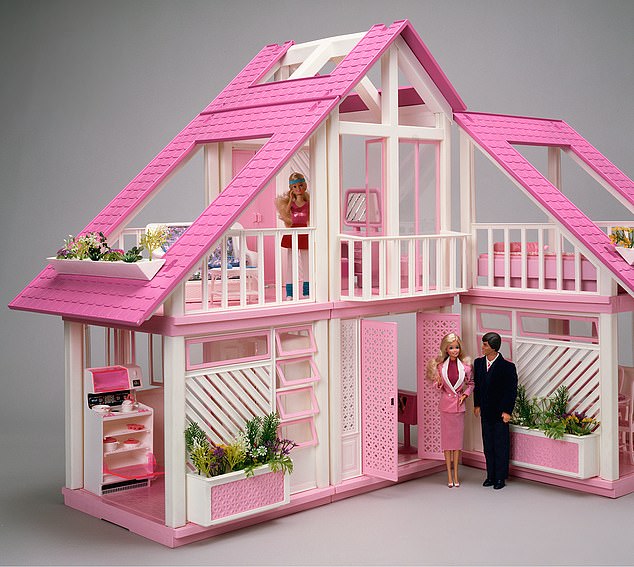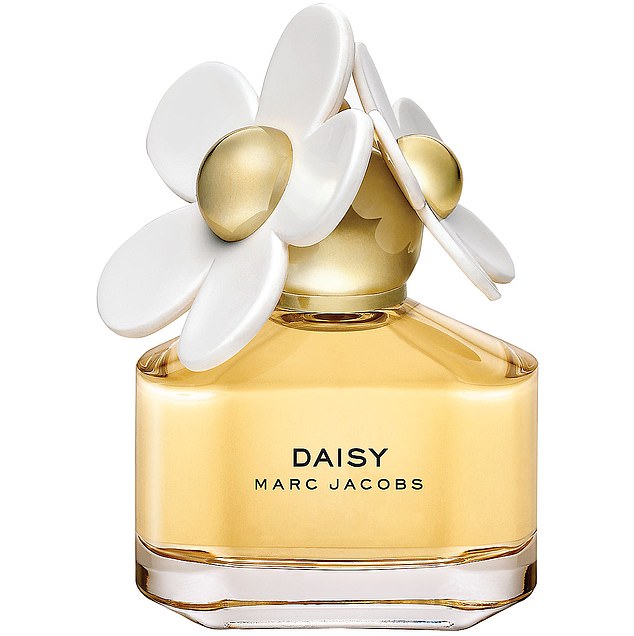An expensive perfume, a designer handbag and a £200 gift experience. These are just some of the luxury items on the gift list she was hoping to buy.
But I wasn’t talking about a beloved family member or close friend celebrating an important birthday.
No, the loot was for a seven-year-old girl who goes to school with my daughter, and the list included an invitation to her birthday party. Looking through the gift catalogue, it also included a Barbie DreamHouse for £250 and a Barbie camper van for over £50.
My first emotion was shock, before anger set in.
Some parents demand that guests bring increasingly lavish gifts to children’s birthday parties.

A Barbie DreamHouse, which cost £250, was on the wish list for a children’s party.
There was a QR code on the cute cardboard invitation, which I had to scan to confirm my attendance. So far, so normal for children’s parties these days. But when I clicked “send”, I was automatically taken to another page called thingstogetme.com.
At first I assumed it was an advertisement or a joke.
Sadly, it was neither one nor the other, but an act of breathtaking audacity that left me stunned and furious. As a teacher, I was also concerned about the impact that such an attitude toward the gift could have on a class, creating jealousy, resentment, and an obsession with consumerism.
Unfortunately, it seems that there is a small group of parents who think differently, because ten months after that first eye-catching invitation, I have received three more with similar gift lists and now I refuse to respond to them.
Although we live in a lovely part of Kent, it is not overly wealthy or ostentatious. My children (I also have a five-year-old son) go to the local state primary school, where there is a mix of stay-at-home mums and working mums with professional careers.
No one is extravagant and the accepted etiquette when it comes to birthday parties has always been for guests to arrive with a token gift, such as a book, hair ties or sweets costing less than £10.
Not anymore.
These wish lists work exactly like a wedding gift registry. You select the item you want (or feel compelled to) purchase, order and pay for it online, and have it shipped to your home or directly to the birthday boy or girl’s home.
Feeling cornered when the first invitation arrived, I picked the cheapest item on the list at £25 (a bottle of Marc Jacobs perfume, which seems like an extraordinary gift for a seven-year-old) and had it delivered so I could at least wrap it up so my daughter could deliver it to her friend in person.
If you think that’s bad (like I do), I was stunned to see a section where parents could send cash. It said, “If you want to contribute more or can’t afford the items on their list, you can send money instead.” What nonsense!
It wasn’t long before the WhatsApp chat I’m on with half a dozen other mums started filling up with messages of shared horror. Screenshots of the wish list were accompanied by comments like “Has anyone else received this?” and “What the hell?”
Despite our outrage, the seven of us eventually reluctantly lined up, not wanting to break ranks for fear of being judged by the boy’s parents or even the birthday girl herself. More specifically, we didn’t want our children to be judged if they didn’t buy one of the stipulated gifts.
This first invitation came from one of the wealthiest families at school. They live in a big house and the mother runs her own yoga studio while the father is a family doctor. Maybe their expectations were higher or they loved being the first to start the trend. Or maybe they thought they were within their rights since they were hosting an expensive spa-themed party.
Reluctantly, I showed my daughter the first list and suggested that we buy the perfume, because normally we would choose something together for her friends. Excitedly, she asked, “Shouldn’t she be asking her mom and dad for all those important things?” Fortunately, she was just as surprised as I was.
The rawness of what he was seeing was not lost on him, even at his age.
At the party, my mom friends and I looked at each other with frowns and raised eyebrows as the girls got manicures next to a table full of gifts. Afterward, we exchanged texts to express our anger and also our hope that this was a one-time thing. We didn’t even receive a thank-you note.
However, exactly one month later, my daughter came home with another party invitation that contained a link to the same gift site when I responded.
Seething with anger, I felt again that I had no choice but to choose a gift – a fragrance, too, by the way, because it was the cheapest item on the list, at around £30, a bargain compared to the Pandora bracelets and charms also on order.
I didn’t share it with my daughter this time because I don’t want her to think it’s acceptable to send a list along with a party invitation. I hope we’re raising her not to ask for something similar when her birthday comes around, but there’s no way to explain peer pressure.

Even a £25 bottle of Marc Jacobs fragrance seems like an extraordinary gift for a seven-year-old.
One friend has argued that these lists actually save other parents the unnecessary expense of a gift that is not wanted or will not be used, which would be fine if the limit was a £10 spend.
But nothing will convince me that these wish lists have anything to do with anything other than entitlement, especially when the cost of living is sky-high.
It’s just not okay to make these kinds of assumptions about people’s finances, and it encourages kids to focus more on the things they’ll receive than on who’s attending their birthday party or tea and how much fun it will be to celebrate together.
Anyway, isn’t the point of a gift that you spend time thinking about what to give and choose something sincere that you think the recipient will like and find meaningful? Mindlessly clicking through a list of demands doesn’t produce the same feeling of warmth.
By the time the third wish list came around earlier this year, I had completely overcome any fear of judgement and reverted to my old rule of a £10 budget per gift, telling my mum friends that if we didn’t take a stand, we’d never break the cycle.
Coming to the party knowing I had ignored the list brought me enormous satisfaction and opened the floodgates as my friends followed suit. Again, we didn’t even get a thank you note, but I didn’t care. I staked out my territory.
I also don’t care what the mothers who send these lists think of my lack of compliance or my increasingly vocal complaints. Although I wouldn’t go so far as to confront another mother unless she felt the need to complain to my face about a gift we had purchased.
As a teacher, I’ve started hearing more stories of birthday wish lists from outraged parents who agree that they are a truly horrible idea.
But apparently we’re in the minority. Gift list site Wishbob reported a 373 percent increase in the first quarter of 2024.
Meanwhile, My Wishlist says new signups are up 42 percent this year.
One thing is certain: if any of my children ask me for a list like that, I won’t give it much thought. I’ll be quick to remind them that the best birthday present is having the opportunity to celebrate it with their friends.
As told to Sadie Nicholas
(tags to translate)dailymail


